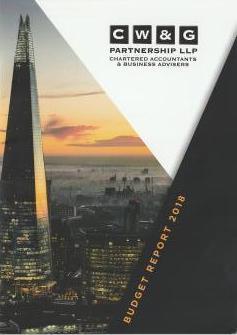

020 3405 4722
News & Information
Here are some of the key points from the Autumn 2018 Budget :
· Stamp Duty abolished for all first-time buyers of shared ownership properties valued up to £500,000, applied retrospectively to the date of the last Budget.
· A freeze on beer and cider duty for the next year and a freeze on spirits duty, saving 2p pint of beer, 1p on pint of cider and 30p on bottle of scotch or gin.
· National Living Wage will rise in April from £7.83 to £8.21
· New Millennial railcard available by end of year
· Income tax personal allowance threshold to rise to £12,500 from April 2019.
· Higher rate income tax threshold to rise to 50,000 at the same time.
· Counter-terrorism police to get an extra £160 million funding for 2019/20.
· A one-off £400 million payment to schools to allow them to “buy kit”, an average of 10,000 per primary school and £50,000 for secondary schools.
· An extra £1 billion for the Ministry of Defence
· Business rate bills cut by one-third for the next two years for all retailers in England with a rateable value of £51,000 or less, delivering an annual saving of up to £8,000 for up to 90% of all independent shops, pubs, restaurants and cafes.
· Start-Up Loans funding to be extended to 2021, helping 10,000 entrepreneurs.
· New tax on manufacture and import of plastic packaging that contains less than 30 per cent of recycled plastic.
· The Private Finance Initiative (PFI) and its successor PFI2 abolished for future Government projects.
· UK Digital Services Tax to be introduced in April 2020 targeting online giants with more than £500 million in global revenues.
· Freeze fuel duties for ninth consecutive year.
· An immediate £420 million payment to tackle potholes, bridge repairs and other minor road works.
· An extra £1 billion over five years for the Universal Credit benefit programme.
· NHS funding to rise to £20.5 billion in real terms over the next five years and a new mental health crisis service to be included in the NHS 10-year plan.
UK Company Taxation
| Financial year from 1 April | 2019 | 2018 |
| Corporation tax main rate | 19% | 19% |
| Loans to participators | 32.50% | 32.50% |
| Diverted profits tax | 25% | 25% |
Main Capital Allowances
Initial Allowances
| Annual investment allowance: on first £1m (excludes cars)* | 100% |
| First-year allowance for certain environmentally-beneficial equipment, new and unused electric and low CO2 emission cars (up to 50g/km) | 100% |
Applies from 1 January 2019 to 31 December 2020. Transitional rules may apply for chargeable periods spanning these dates.
Writing-down Allowances
| Plant and machinery main-rate expenditure | 18% | |
| Plant and machinery special-rate expenditure | 6% | |
| Cars | 51g/km – 110g/km | 18% |
| Over 110g/km | 8% |
|
|
Structures and buildings allowance – straight-line relief | 2% | |
| Electrical charge point, energy and water efficient equipment and electric vans | 100% | |

Income Tax
Taxable Income Bands and Tax Rates
| 2019/20 | 2018/19 | |
| Starting rate* of 0% on savings up to | £5,000 | £5,000 |
| Basic-rate band | £37,500 | £34,500 |
| Higher-rate band | £37,500 to £150,000 | £34,500 to £150,000 |
| Additional-rate band | Over £150,000 | Over £150,000 |
| Basic rate | 20% | 20% |
| Higher rate | 40% | 40% |
| Additional rate | 45% | 45% |
| Dividend ordinary rate | 7.50% | 7.50% |
| Dividend upper rate | 32.50% | 32.50% |
| Dividend additional rate | 38.10% | 38.10% |
* The starting rate does not apply if taxable income exceeds the starting rate limit.
Allowances that reduce taxable income or are not taxable
| 2019/20 | 2018/19 | ||
| Personal allowance* | £12,500 | £11,850 | |
| Personal Savings Allowance | Basic-rate taxpayer | £1,000 | £1,000 |
| Personal Savings Allowance | Higher-rate taxpayer | £500 | £500 |
| Personal Savings Allowance | Additional-rate taxpayer | £0 | £0 |
| Dividend allowance at 0% | £2,000 | £2,000 | |
| Marriage/civil partner transferable allowance** | £1,250 | £1,190 | |
| Trading allowance and property allowance each*** | £1,000 | £1,000 | |
| Rent-a-room allowance | £7,500 | £7,500 | |
| Blind person’s allowance | £2,450 | £2,390 |
* The personal allowance is reduced by £1 for each £2 of income from
£100,000 to £125,000 (2018/19, £123,700).
** Any unused personal allowance may be transferred to a spouse or civil
partner, where the recipient is not liable to higher or additional-rate tax.
*** Note that landlords and traders with gross income from each of these
sources in excess of £1,000 can deduct the allowance from their gross income as
an alternative to claiming expenses.
|
Capital Gains Tax
|
|
|||||||||||||||||||||||||||||||||||||||||
|
||||||||||||||||||||||||||||||||||||||||||